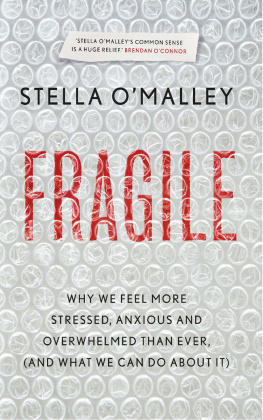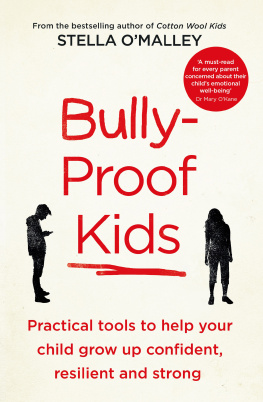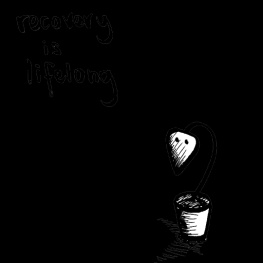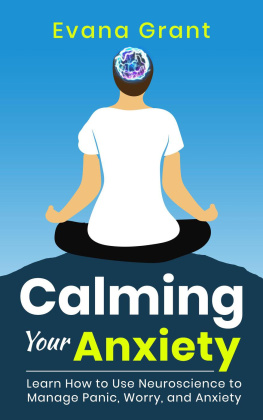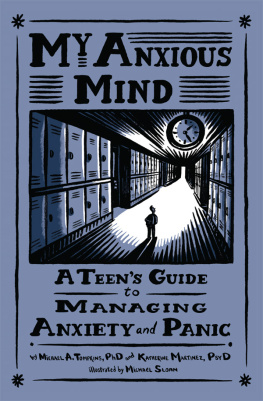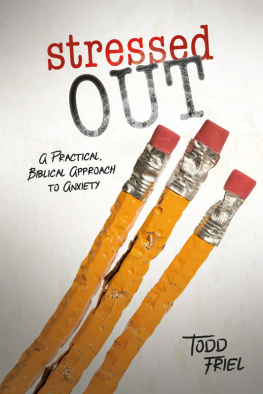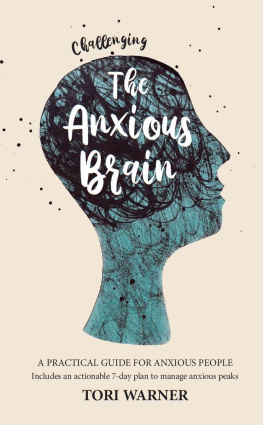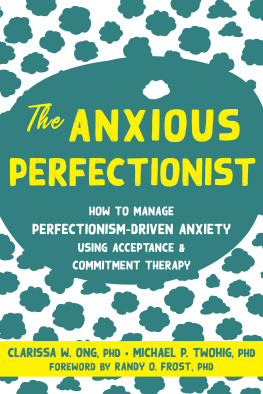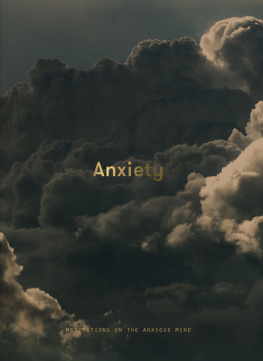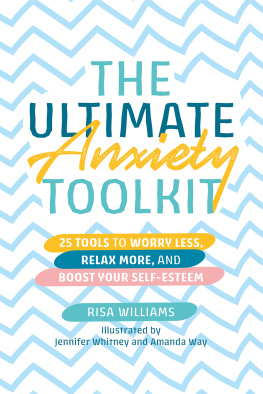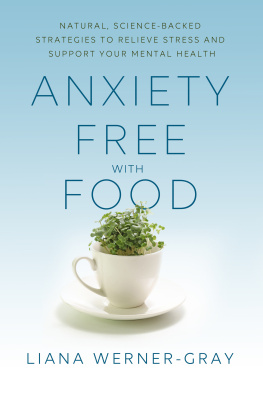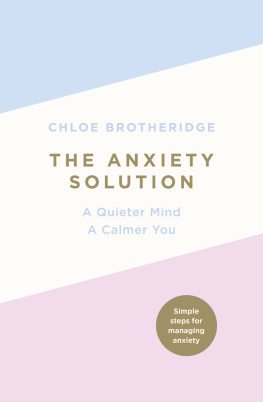FRAGILE
WHY WE FEEL MORE ANXIOUS, STRESSED
AND OVERWHELMED THAN EVER
(AND WHAT WE CAN DO ABOUT IT)
Stella OMalley
Gill Books
For my mam, Kathleen OMalley
CONTENTS
INTRODUCTION
T he extraordinary rise in the number of people experiencing anxiety has coincided with the growth of irrational, inappropriate and just plain wrong approaches to deal with it. I have written this book to highlight the most effective approach to combat anxiety and stress and also to stress how the media, society and the world in general are misguidedly promoting the worst possible strategies for managing anxiety. In this book readers will learn why, when it comes to handling anxiety, avoidance strategies dont help in fact, they usually make your anxiety far, far worse.
It is not psychology but marketing forces, political spin and media scare stories that have created a world that leads ordinary people to fall down a rabbit hole where feeling tense, anxious and overwhelmed is more common than the reverse.
This book explores the way that we are weakening ourselves by using exactly the wrong techniques to deal with our anxiety. Not only that, but policies such as no-platforming, trigger warnings and safe spaces are leading people to the incorrect notion that we should avoid everything that makes us feel unsafe or uncomfortable. This has led to a situation where a lot of mental health messages, initiatives and projects are now being dumbed down and administered incorrectly.
Granted, certain avoidance strategies might feel good in the short term, but in the long term they can be like heroin to an addict providing some short-term relief in exchange for long-term pain. Most avoidance strategies only serve to worsen anxiety and train the brain to avoid helpful behaviour that could actually help reduce anxiety. Far better to learn to grasp control of your life and your mind than to live with this constant feeling of underlying tension and nerves.
This book aims to consign short-term dysfunctional techniques to the dustbin. We all need short-term strategies to get us through the day, but we cannot rely on these techniques in the long term. They are often debilitating and they dangerously collude with the flawed thought processes that lead us to fear our anxiety, encouraging us to believe that we cant cope with any uncomfortable feelings.
But with the right support and understanding, we can!
If you are to create a happier and healthier life it is necessary to identify the long-term therapeutic approaches that, with some work and commitment, have been actually proven to help you overcome your anxiety. This more comprehensive approach will lead you to an in-depth understanding of yourself and how you need to live your life so that you can be free to live without anxiety, stress or tension continuously hovering around the edges, always ready to attack and reduce you.
The first part of the book describes exactly how the anxious mind works and demonstrates how to get out of the common traps we fall into when were anxious.
The second part focuses on how most of us are weakening ourselves by doing too much, trying too hard and consuming too much. We know it. We know we should calm down and just enjoy our lives but we cant seem to get off the relentless treadmill of being foolishly busy.
The last part of the book identifies different approaches that will enable readers to live a different, calmer, more satisfying life. Through strategies, tips and case studies, readers will learn how to withstand feelings of worry and panic and feeling overwhelmed. They will then be free to enjoy the relative wealth and stability that the developed world already offers without getting caught up in the constant search for more.
As the psychologist Oliver James warns us, Beware of authors bearing gifts of happiness. It is psychological snake oil. Im hoping this book will be better than that. My aim is to make you feel empowered enough to find some meaning and purpose in the life that you already have, without feeling overwhelmed by gnawing anxiety and debilitating tension chipping away at you. You dont need to feel fragile any more; you can instead tap into the strength in your belly and go forth with your head up, your shoulders back, with confidence and positivity about your ability to live a life that is both satisfying and pleasant.
PART 1
HOW ANXIETY IMPACTS YOU
CHAPTER 1
How anxiety works
The mind is its own place and in itself
Can make a Heaven of Hell, a Hell of Heaven.
JOHN MILTON
A nxiety has been described as an over-estimation of danger combined with an under-estimation of our ability to cope. Usually the danger isnt so threatening and usually we will cope better than we imagine, but thats not how anxious minds work. Over-thinking, over-feeling and over-reacting are daily challenges for too many people because anxiety takes over and leads us to dismiss logical thinking and run with our emotional minds. Anxiety leads us to feel overwhelmed, it tramples on our wellbeing and consumes our minds with obsessive thoughts that we just cant close down.
But most people who crack up do it silently; most of their struggle is internal and most of their pain is turned inwards, which is why most people blame themselves instead of todays anxiety-inducing lifestyles. The problem is that we dont know when our friends and neighbours are cracking up, so everyone tends to think that their tension is a personal failing instead of a destructive trend in our society. I know that feeling anxious and stressed is an increasingly common complaint because as a psychotherapist I meet the clients who blame themselves instead of blaming the toxic level of pressure that is foisted upon them. Its clear to anyone who is working as a mental health professional that it is our toxic society rather than the individual that is causing most of the strain; we the mental health professionals all witness the destruction that society is wreaking on our mental wellbeing. But most people dont work in the mental health industry, so most people dont have the information to hand to see that stress, anxiety and feeling overwhelmed has become part of an enormously growing pattern that is happening to everyone.
Whether you have been diagnosed with anxiety or even if you just know you are feeling more anxious and overwhelmed than youd like to be, this book should bring about more self-awareness so you can learn to spot what works best for you and what makes everything worse. If you are to free yourself from feeling tense and fearful, you will need to unpick the source of your tension so that you can counteract the underlying sense of anxiety and unease that is slowly growing within you and steadily becoming more unmanageable.
The challenge for people who experience anxiety is that they need to learn to live with it. Alcoholics can give up alcohol and cigarette smokers can give up tobacco but people with anxiety cant give up anxiety; just like the anorexic who has to learn to eat again, the anxious person needs to learn to live with anxiety. You can, however, reduce the intensity, the timespan and the impact of your anxiety. If these three elements can be significantly reduced, then it is usually enough for the anxious person to live a free and easy life unrestrained by the terrible gnawing anxiety that was previously making them miserable.
ARE WE ALL FEELING ANXIOUS?
According to the latest research, we in the West are living through an unprecedented epidemic of anxiety with up to 33.7 per cent of the population affected by an anxiety disorder at some stage during the course of their lives. The familiar tightness, tension and fear that grips us is being experienced by so many people that we are starting to believe that we should be accustomed to living with a chronically constricted spirit.

